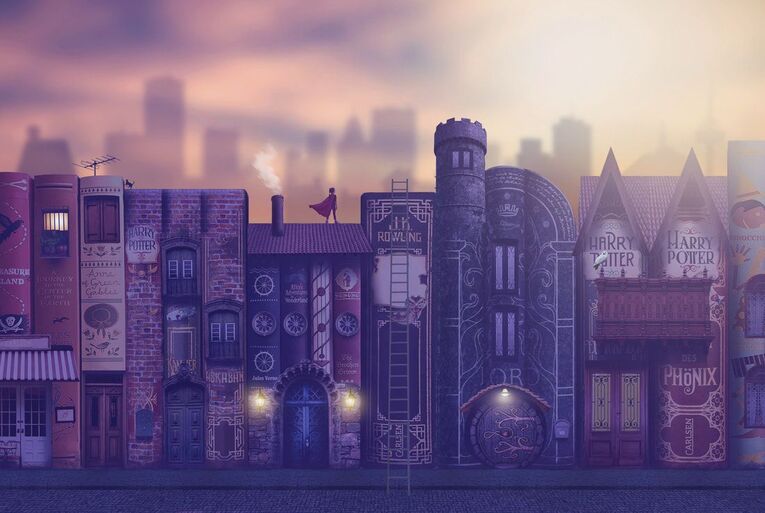|
This article first appeared in Deborah's blog. They're gaining some traction again, but time was, serial novels were a big deal in English-speaking countries. They were published in the newspapers (some more legitimate than others), and some of our best-beloved classics were first written that way--A Tale of Two Cities by Charles Dickens, for example. A mess of a novel if I've ever read one . . . Writing Yourself into a Corner Okay, let me go back. I'll first say that I actively adore A Christmas Carol, and really enjoy some of Dickens's other books. But A Tale of Two Cities feels really . . . unedited. It has serious continuity issues, as if the author wrote the chapters one at a time without planning ahead or rereading his old material—and then once he was committed, that was pretty much it. Which is a fairly accurate representation of how a lot of serial formats are written. In fact, it's very, very familiar to me, because I have read a lot of fan fiction, and most fan fiction is written as a serial, one chapter at a time. Unlike with stories posted in newspapers, fan fiction authors can go back and edit their earlier chapters, and even do large revisions. Even so, it's common for a fan fiction serial to stop abruptly, because the author has written herself into a corner and can't get out. Easy to do. So how do you solve it? If you're writing a novel on your own, you can always go back and overhaul it, deleting tens of thousands of words if necessary. If you're writing fan fiction, you can simply stop or redo a lot of early material. Sure, your readers will be bummed, but it's not like this is serious published stuff. But Dickens didn't have that option. What does that leave him? Prewriting the whole thing? If he was writing for money, that would've been a problem. Heavily outlining the entire novel before he began? A better option, but not the best. See, his real problem was that he went into the novel the wrong way: he tried to write a traditional novel in serial form instead of writing a serial novel. The Modern Serial Novel Serial novels aren't currently that big in English-speaking countries, but they are in some Asian countries. I've read Chinese, Korean, and Japanese web novels, as well as (in some cases) the edited light-novel versions of the same. And in doing so, I've noticed a real pattern: The really good web novels begin as 4- or 5-star books and stay that way for the first 100,000 words or so (about 300 pages) but then slowly decline until I stop reading them around page 1000 or 1200 . . . even though the novels continue for up to another 4000 pages. Sometimes the decline is abrupt, sometimes gradual, but it's pretty much always there. So why does it happen? Well, the main reason it seems to happen is that the author has a great idea for the first arc or season, but then they have to just keep writing . . . and maybe they have a few more ideas for the second or third, but eventually, they just keep writing without anything fresh, so the whole book goes downhill. This can and does happen in ordinary book series also, of course, but the time pressures on a web novel combined with the inability to easily change earlier material to any substantial extent makes the situation much tougher. So What's the Solution? As I'm writing my own serial novel on what is, for me, quite a tight schedule, and as I just finished writing the first arc, this is definitely something I've thought about! I've come to several conclusions. First of all, aside from novels, what successful examples do we have of serial formats? Well, we have long-running television shows. We have both modern shows and older ones that were in a more traditional serial format of four to eight 20-minute episodes (Doctor Who, for example). Let's look at TV shows that ran for more than three seasons without their quality dipping and in some cases improving: The X-Files, Farscape, and Star Trek: The Next Generation (TNG). What made these work so well for so long? First, the characters. The X-Files has just Mulder and Scully (and their later replacements), but those are really, really strong, intricate, interesting characters with a great dynamic. Farscape has a very strong lead and is willing to swap out some of its secondary leads when they get stale. TNG has a strong captain and enough of a large and varied main cast that, even if not all the characters are that deep, they can switch between them and therefore not get stale. Second, the setting. Each of these shows has a home base (FBI Headquarters or their starships) but then explores many different locations and meets many different types of people. Third, the format. It's . . . episodic. But here we have more variety. The X-Files has a background running plot, but nothing changes that much from season to season. Unfortunately, its running-plot episodes are weaker than its monster-of-the-week episodes; TNG doesn't have much of a running plot, and nothing much changes from season to season. This means the overall story is rather irrelevant, and you can easily watch episodes in any order (great for reruns, but not a bonus for a serial novel. It's more like a series of short stories); Farscape has a background running plot but it also changes a lot as the characters progress and change from season to season. Both the first and the last season are very good, and if you watch it in order, it all makes sense—but things change a lot in between. I find Farscape the most satisfying because of this progression, and it also helps keep the characters interesting. It also does something wonderful in that it has more of a proper full-season arc storyline that feels fully integrated with the storyline without interrupting it. In my opinion, it does the best job of being both a single-running story and having lots of little episodic stories. In essence, my ideal is as follows: Each episode (single- or multi-part) has its own arc; each season has its own arc; and the show has its own arc. This episodic format is ideal, because it makes it way harder to write yourself into a corner; but having the longer arcs also makes the story feel more coherent and relevant. Since each episode is mostly self-contained, you can completely edit it and make it work before posting. Of course, you have to have the self-control to do this properly . . . but isn't that always the case with writing? To put these together, you want: 1) One or more strong and intricate leads with enough secondary characters that you have someone to jump to if you need something different, 2) A strong and interesting home base but many interesting places to visit with interesting people to meet, and 3) A format that both is episodic and has a running plot that occurs naturally, not as a weird interruption. 4- and 5-star Serial Novels Here is a list of novels I've read in serial novel form, and that stayed good for at least 500 pages, and that I highly recommend. (I'm not including the novels I've read that were originally web novels but I read the light novel versions only.) Dungeon Defense (KR) (I lasted maybe 700 pages, I think. There's also a light novel version. It's 5 books long, and extremely different.) Experimental Log of the Crazy Lich (CN) (I lasted 1000 pages.) The Novel's Extra (KR) (I lasted 1300 pages.) I'm Really Not the Demon God's Lackey (CN) (The first 1000 pages have been translated, and it's still good!) Kingdom's Bloodline (CN) (I only made it through the first arc/season before the quality abruptly dropped, but that first arc was superb!) My Death Flags Show No Sign of Ending (J) (I binge-read the 1200+ pages that had been translated. There was a weird shift near the end that damaged quality, but I'd keep going.) As an Amazon associate, we earn from qualifying purchases.
0 Comments
Your comment will be posted after it is approved.
Leave a Reply. |
Archives
July 2024
Categories
All
|
As an Amazon Associate, we earn from qualifying purchases.


 RSS Feed
RSS Feed
